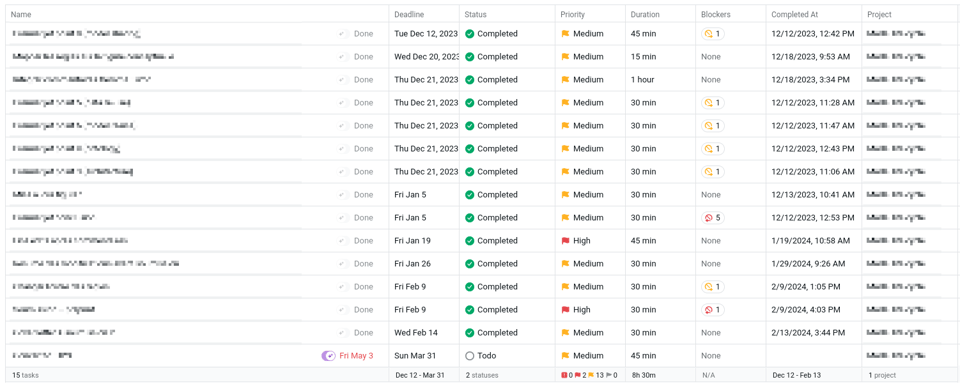Vol. 13 - Keeping a writing schedule (is a bad idea, maybe?)
Stop forcing daily writer's block, start using to-write lists.
For a long time, I was convinced that having a daily calendar entry called “writing” was a wise thing.
I’m pretty sure I was wrong.
Writing is a skill, and skills improve with conscious, mindful, sustained practice. This is a fact. But mandating a time every day at which I must be writing (if not, something bad will happen, presumably?) was not the right way to approach the task of writing.
What prompted me to start scheduling daily writing blocks was an observation from my violin teacher, back when I was 10, about how motivation is unimportant; what we need is discipline, so that when motivation happens, we are skilled enough to act on it. And so, or so I thought, I needed to write.
About what, you may ask, and that is an excellent question—one I didn’t really think about back then, and this created many a morning of staring at my keyboard thinking that I really ought to be writing.
But not doing any writing.
It was not for lack of papers to write! The fundamental mistake I made was thinking of writing as this task unto itself, this state of being that doesn’t need more context or precision.
Just, y’know.
Writing.
Then, I started to realize that a big thing is simply 10000 little things, and the concept of “writing” didn’t feel so meaningful anymore. Replacing the nebulous concept of “writing” with a series of very specific times that either had or wanted to do was an immediate game changer.
So what replaced my writing time? That’s right, to-write lists!

The trick, I believe, is that it removes the decision paralysis. I may have about 15 papers in progress that require their own to-write list to keep track of—which sounds like a lot. But whenever it’s time to write, I get to pick one of these tasks from the top of the pile, and then do it, and move on to the next one.
How we allocate our time is a deeply personal decision; there is no single good solution here, just ways of working that keep us sane and productive (in that very specific order). What seems a good idea in theory can easily backfire in practice.
And with all that said, stay tuned for Vol. 14 next week, for a discussion of why you should never for any reason, for any reason ever, no matter what, no matter where, or who, or who you are with, or where you are going, or where you've been… ever, for any reason whatsoever… maintain a software package.